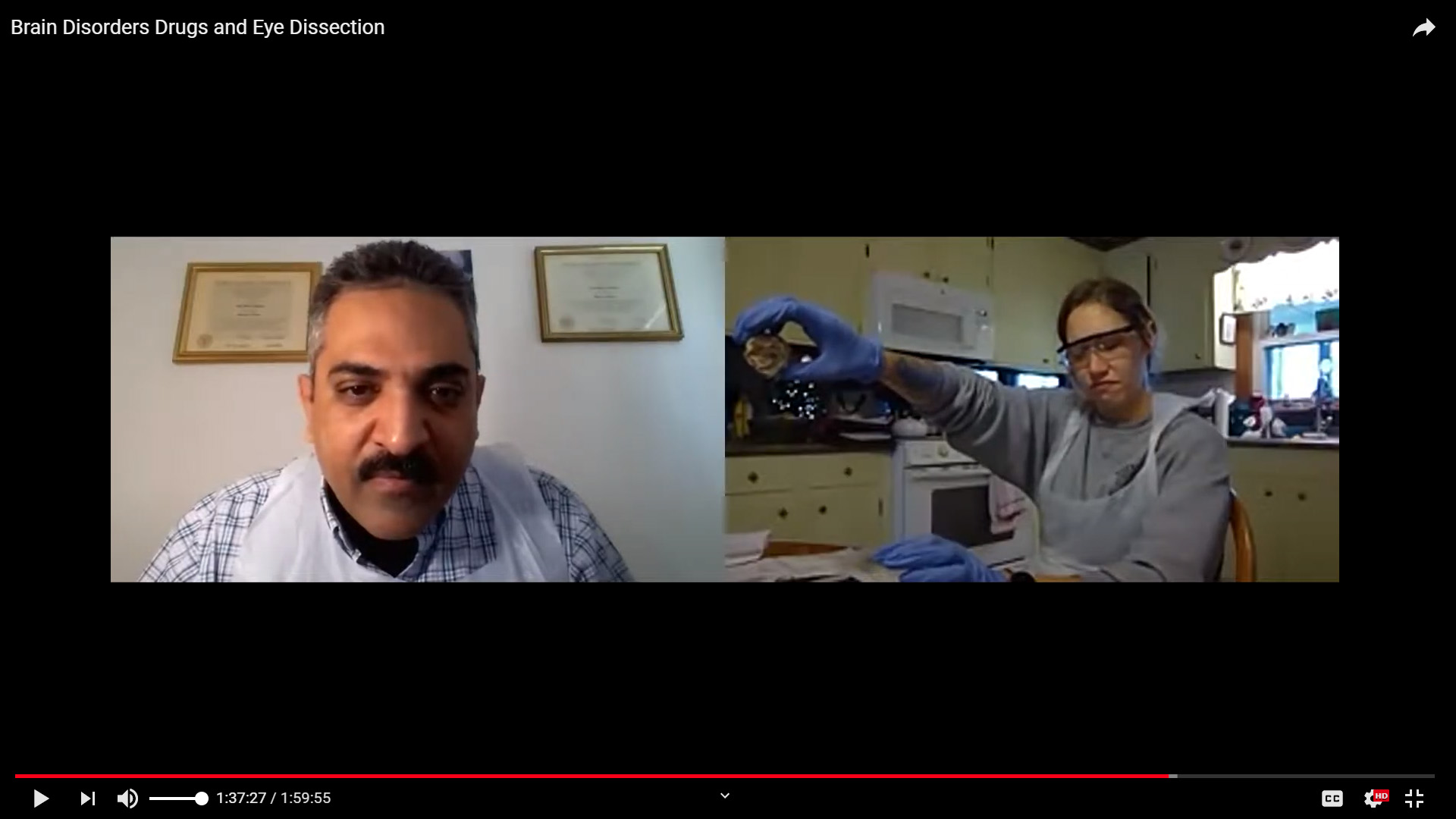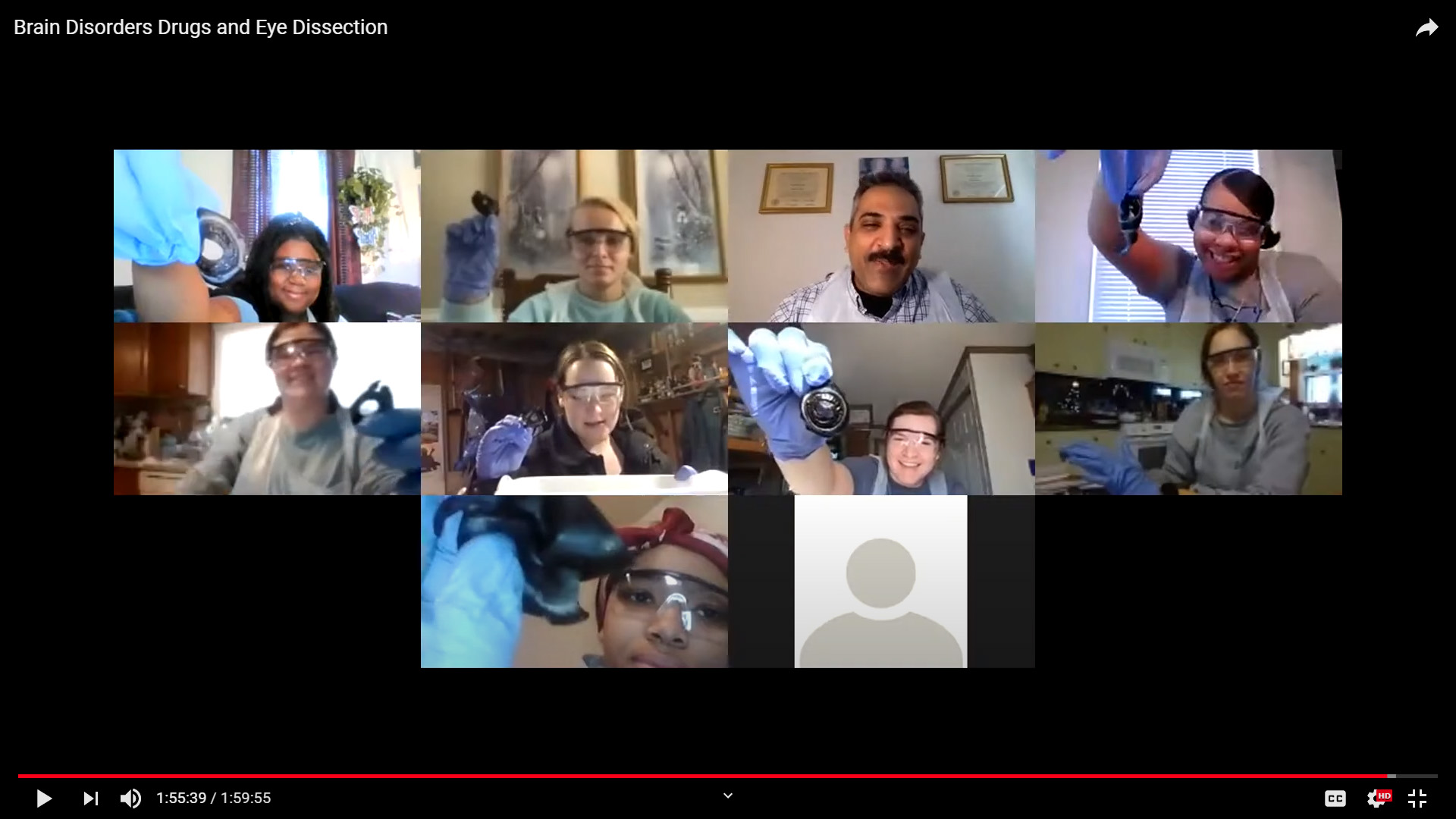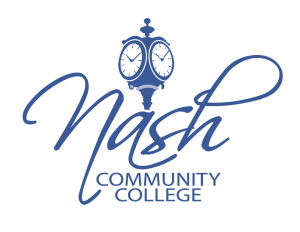Instructor Leads Cow Eye Dissection Through Zoom

Nash Community College Instructor Nahel Awadallah continually develops new and innovative ways to approach lessons that historically have been done in-person.
Awadallah led his Anatomy and Physiology I fall semester class through a virtual lecture on common brain disorders. The main focus of the lecture was the effects common drugs such as marijuana, heroin, cocaine, methamphetamine, ecstasy, and other stimulants can have on humans. During the discussion, students learned the mechanism of action, addiction, and treatment for each drug.
In addition to the lecture, the class also participated in a cow eye dissection. While completing the exercise, students identified the iris, lens, retina, and cornea.
“The challenge was to adjust the lecture with images and videos that addressed all learning styles… and doing so in a virtual environment,” Awadallah said. During the pandemic, more than ever before, he says, instructors have had to adapt, be flexible and creative.

“The lecture included content for visual, auditory, reading and writing and kinesthetic learners. I referred to it as ‘mission impossible’. It is a unique challenge to keep students engaged while they are watching me from home. Many have families, children and pets at home plus distractions that sometimes interfere with learning during class time.”
Awadallah said he is amazed at the resilience and adaptability of his students. “Families and students have adjusted to respect class time. Virtual learning has increased accessibility and inclusion for students and actually led to an improved learning experience,” he said.
“Animal dissection is a proven way for students to learn. The virtual experience was even better than in a class environment with more engaging peer discussions.”
Using their own at-home dissection kits, students learned the external and internal anatomy of the organs which leads to better understanding of physiology and how organs work together, Awadallah said. “The challenge was to keep them focused, following instructions and implementing safety protocols to prevent injury. Students truly enjoyed performing the dissections from home, sharing their results via Zoom and helping each other.”
NCC’s Anatomy and Physiology I BIO-168 course provides a comprehensive study of the anatomy and physiology of the human body. Topics include body organization, homeostasis, cytology, histology, and the integumentary, skeletal, muscular, nervous, and special senses.
“It is important that even through the pandemic we continue to teach difficult tasks and concepts because the content is valuable. The goal is to maintain focus on helping students recognize the value of the learning content and learning to apply it. We have to stay connected with students, alter instructional strategies and encourage collaboration during lecture. But it is so worth it. Students learn to become independent learners with improved problem solving and critical thinking skills.”
This semester Awadallah looks forward to facilitating a virtual sheep heart dissection.








